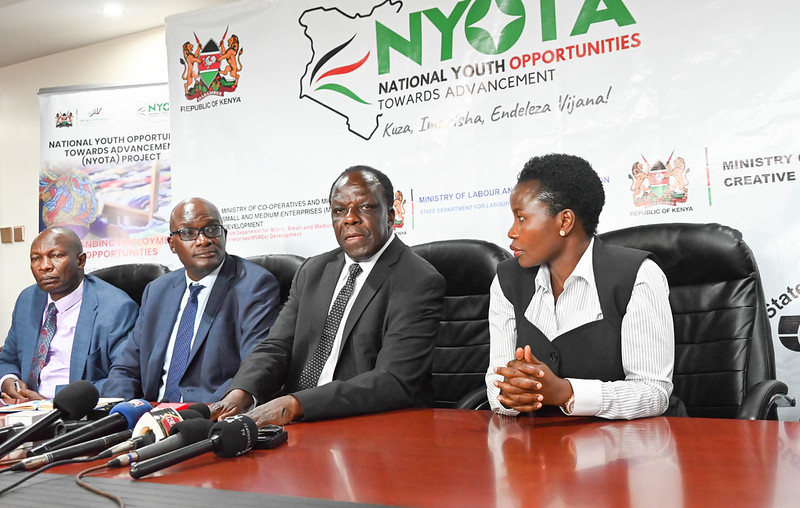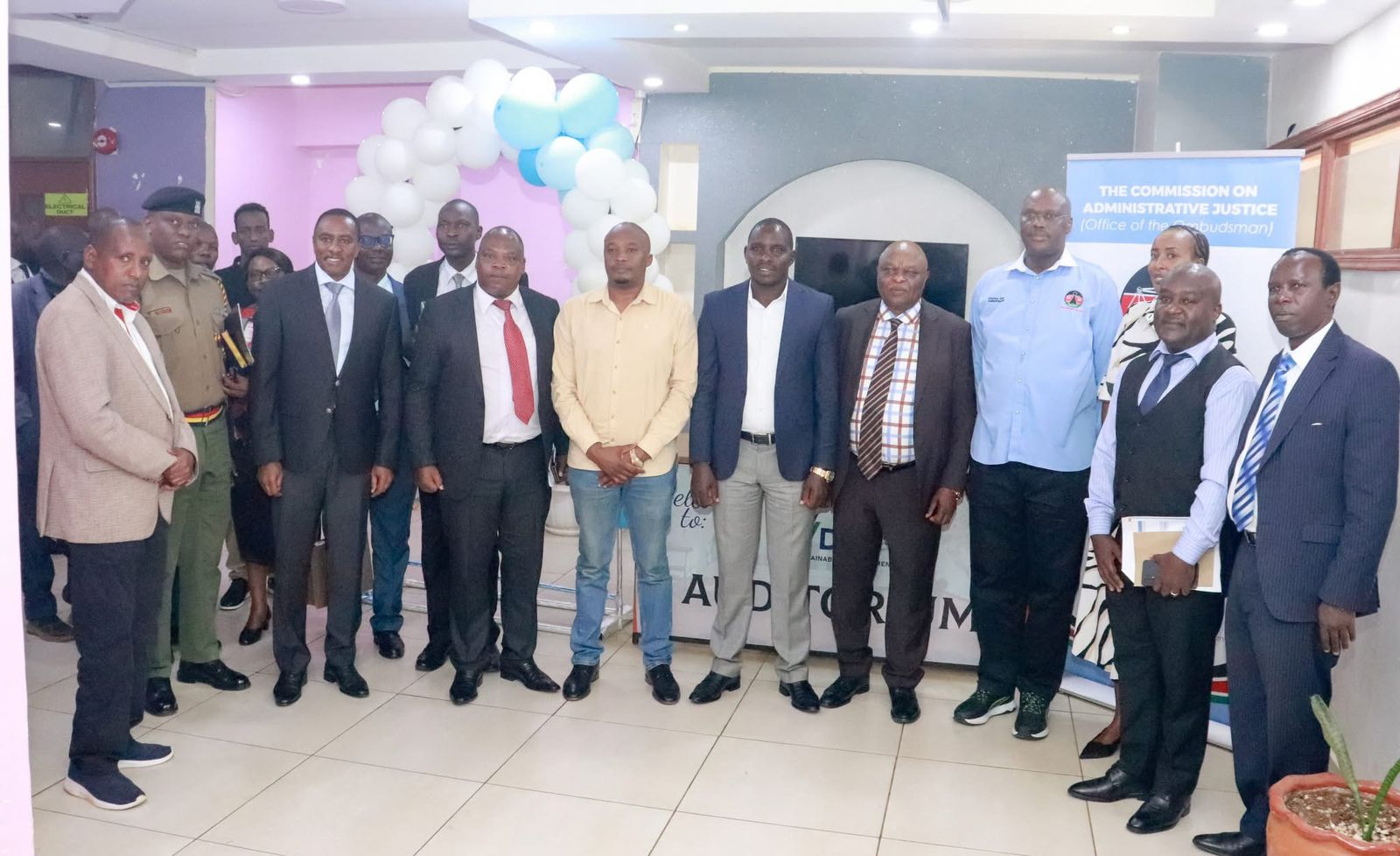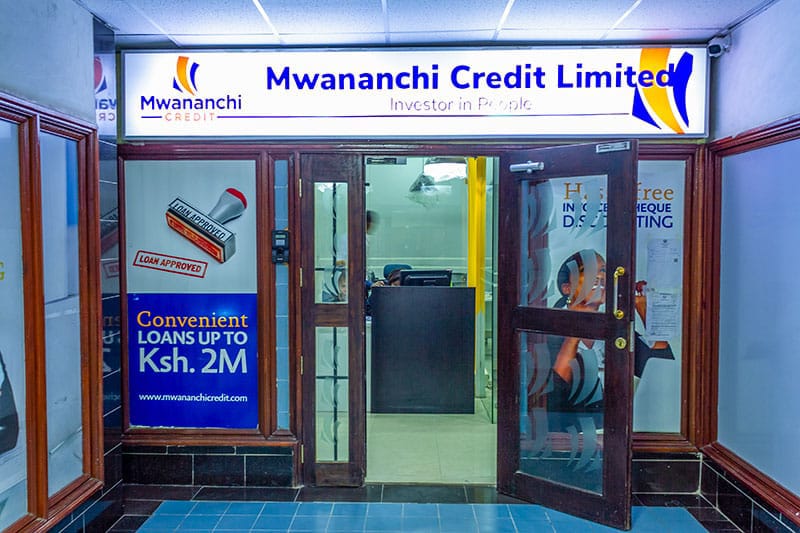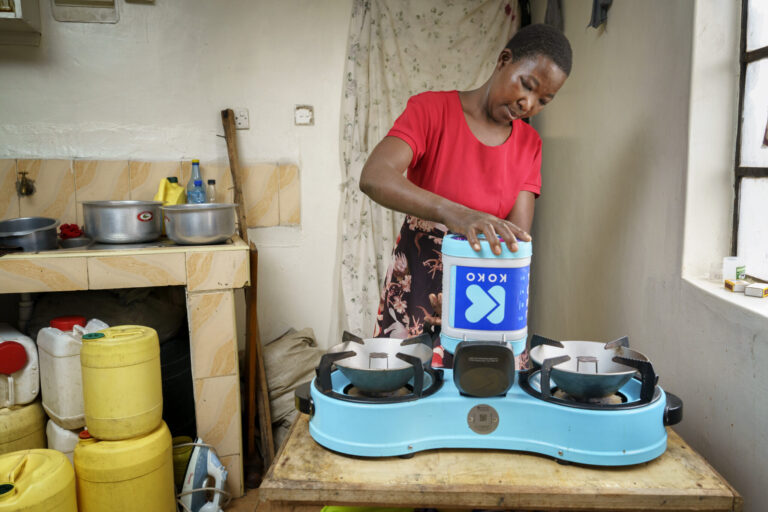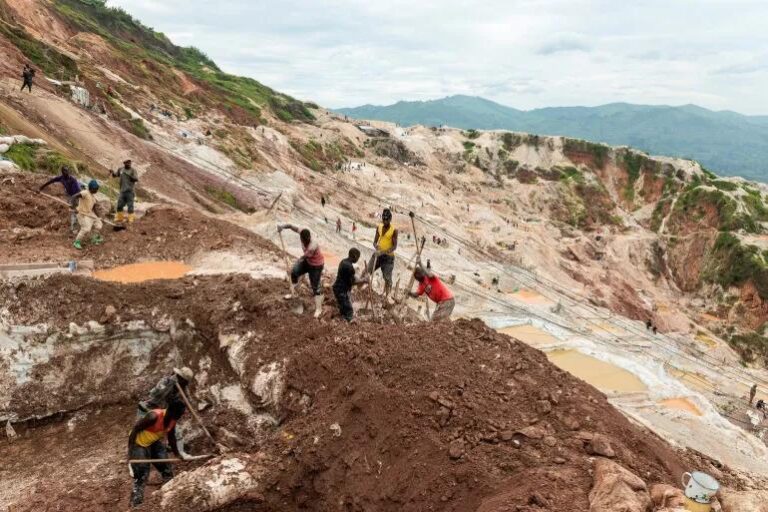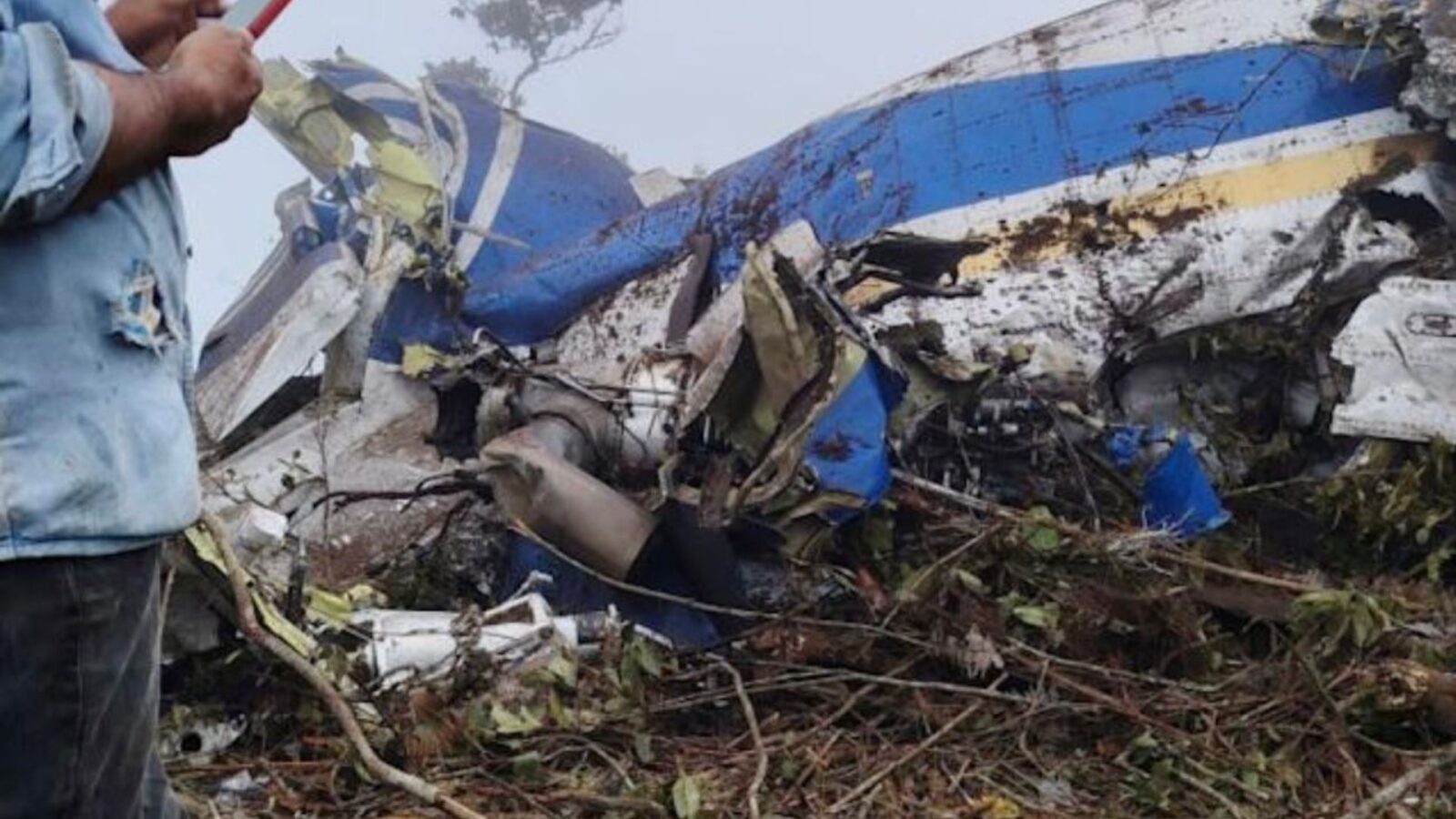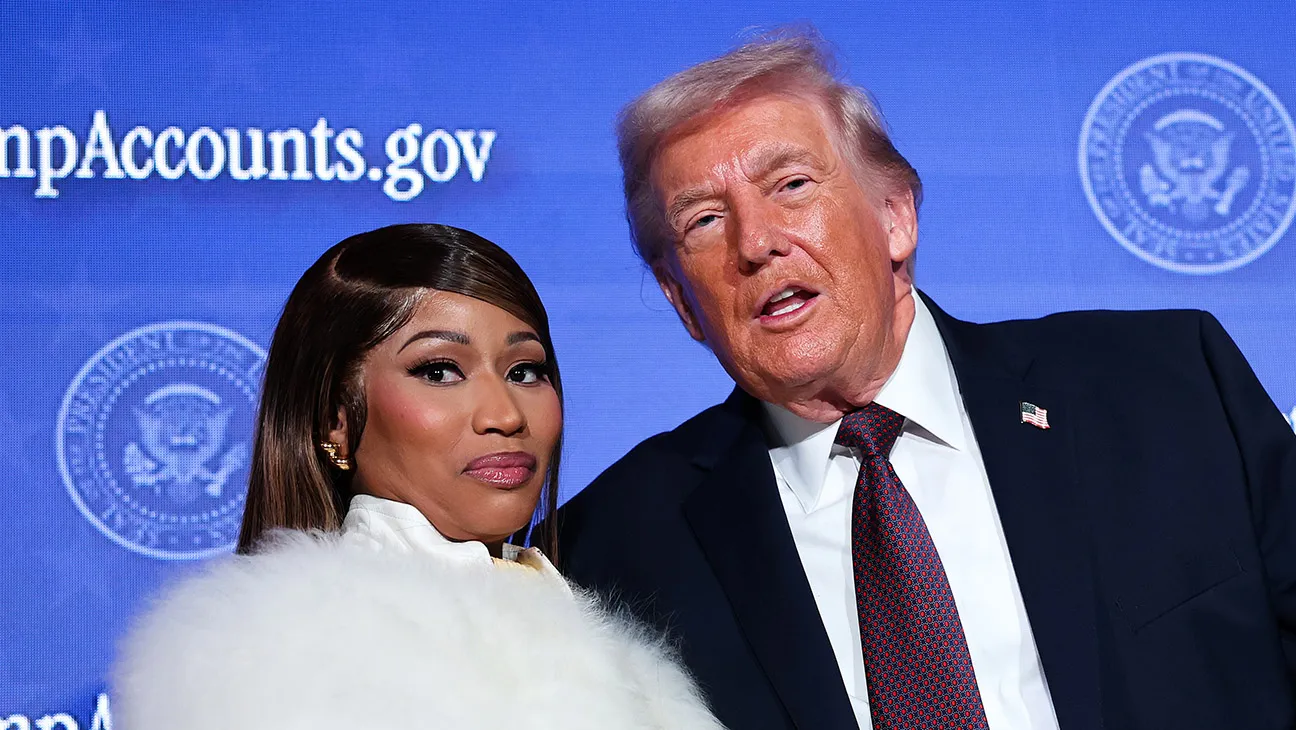15th SEPT 2025, NAIROBI: NYOTA is a five-year Government of Kenya project in partnership with the World Bank, with the overall goal of increasing employment, enhancing earnings, and promoting savings for vulnerable youth nationwide. The project is designed to create strong foundations and systems for sustainable youth economic empowerment across all 1450 wards in Kenya.
The project targets over 800,000 vulnerable youth aged 18–29, and up to 35 years for Persons with Disabilities. The interventions primarily focus on youth with limited formal education and access to economic opportunities, who remain disproportionately disadvantaged in accessing employment and enterprise opportunities.
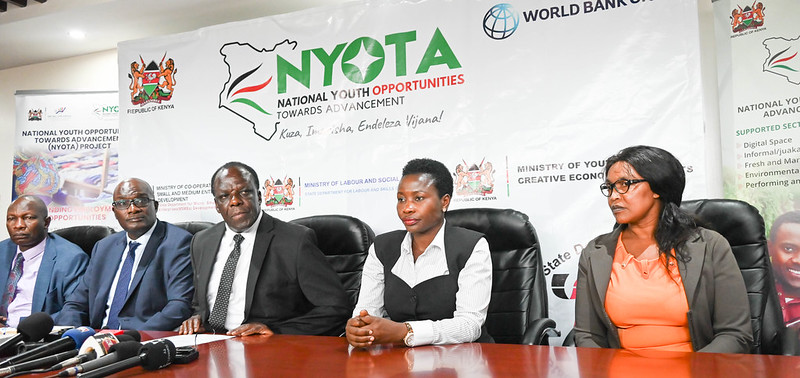
The expected impact of the project includes creating 110,000 youth entrepreneurs; 20,000 certified artisans under the Recognition of Prior Learning (RPL) initiative; 90,000 youth skilled and connected to employment opportunities, and 600,000 youth trained on access to Government procurement opportunities and promotion of a culture of savings.
NYOTA unites multiple government agencies, drawn from the Ministry of Youth, Labour, and my Ministry of Cooperatives & MSMEs Development. The implementing agencies include: Micro and Small Enterprises Authority (MSEA) under the State Department for MSMEs Development; National Employment Authority (NEA), National Industrial Training Authority (NITA) and National Social Security Fund (NSSF) under the State Department of Labour and Skills Development, with the State Department of Youth Affairs & Creative Economy providing overall coordination.
NYOTA project’s interventions are structured around four components:
- COMPONENT 1: Improving youth employability through skills development, apprenticeships, certification, and work placement. This component is implemented by the State Department for Youth Affairs and Creative Economy (SDYACE), National Employment Authority (NEA), National Industrial Training Authority (NITA) and the State Department for Labour and Skills Development (SDL&SD).
- COMPONENT 2: Expanding employment opportunities through training, business development services, and the provision of start-up capital of KSh. 50,000 to 70 youth in every ward in Kenya over the course of the project. This is implemented by the State Department of MSMEs Development, through the Micro and Small Enterprises Authority (MSEA).
- COMPONENT 3: Promoting a culture of savings via the Haba Haba scheme managed by the National Social Security Fund (NSSF).
- COMPONENT 4: Enhancing systems and capacity through digital skills training, enabling youth to access financial and market linkages, access catalytic funds and Access to Government Procurement Opportunities (AGPO). This component is carried out by the State Department for Youth Affairs and Creative Economy and the State Department for MSMEs Development.
Business support component rollout plan
The youth entrepreneurship training under Component 2 has been organised in three cohorts as follows: Cohort 1: 54,000 youths, Cohort 2: 30,000, and Cohort 3: 16,000 youths, which will be rolled out quickly across the country. The implementation of this component has been organised into eight clusters nationwide as follows.
- Cluster 1: Kakamega, Vihiga, Bungoma, and Busia counties.
- Cluster 2: Siaya, Kisumu, Homabay, Migori, Kisii, and Nyamira counties.
- Cluster 3: Baringo, Uasin Gishu, Trans Nzoia, Elgeyo Marakwet, Turkana, Laikipia counties.
- Cluster 4: Nakuru, Kericho, Nandi, Bomet, Narok, and Kajiado counties.
- Cluster 5: Marsabit, Wajir, Mandera, Samburu, and Garissa counties.
- Cluster 6: Kiambu, Nyeri, Murang’a, Kirinyaga, Nyandarua, Nairobi counties.
- Cluster 7: Meru, Tharaka Nithi, Embu, Isiolo, Kitui, Machakos, Makueni counties.
- Cluster 8: Mombasa, Kwale, Kilifi, Tana River, Lamu, and Taita Taveta counties.
“This morning, we started the entrepreneurship training class for the cluster (Western region counties): Kakamega, Vihiga, Bungoma, and Busia. This week-long event is focused in the constituency. It will be followed by two months of comprehensive business mentorship to equip the youth with essential skills to start and run their businesses.
“We expect to roll out training rapidly across the country for Lot 1 in the remaining seven clusters. After completing classroom training in each cluster, the phased disbursement of the business Start-up Capital will follow to the respective beneficiaries to enable them to launch their business ideas. Subsequently, they will receive hands-on support from business development experts to incubate their ideas,” Governor Oparanya says.
The formal launch of the NYOTA project is scheduled to coincide with the commencement of disbursing start-up capital to the trained beneficiaries in cluster 1 and will be presided over by President William Ruto in the coming weeks.


